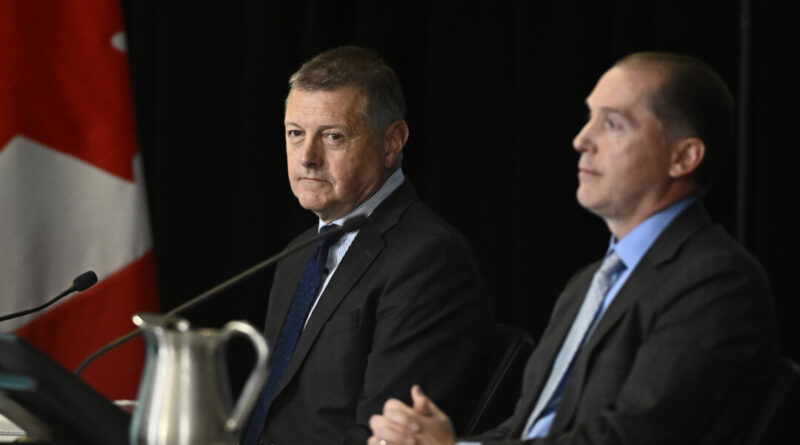Deputy Minister says CSIS needed to assure Minister Blair before wiretapping Ontario politician
The Canadian Security Intelligence Service (CSIS) had to ensure Minister Bill Blair was at ease with a request for surveillance powers on an Ontario politician, as disclosed by a former top Public Safety official before the Foreign Interference Commission.
The commission has been investigating the reason behind the delayed approval by then-Public Safety Minister Blair of the 2021 warrant application against an undisclosed subject, which was later revealed to be current Markham deputy mayor and former Ontario Liberal cabinet minister Michael Chan.
During his testimony at the inquiry on Oct. 8, Rob Stewart, who served as Blair’s deputy, explained the process of warrant approval and expressed surprise at the 54-day delay by Blair’s office in approving the application.
Stewart mentioned that usually, it takes between four and 10 days for the minister to approve a warrant application. He confirmed that he was not provided any reason for the delay in Blair’s approval.
Stewart mentioned that after sending the warrant to the minister, the process becomes opaque for them as it is managed by the minister’s office and CSIS.
In a closed-door discussion with the commission, Stewart hinted at a level of apprehension towards the warrant by Blair and his office.
Stewart testified that “CSIC would have had to assuage the Minister and his team concerning this particular warrant,” suggesting a need for clarification on the processes related to the execution of the warrant on Chan.
List of Names
Gib van Ert, counsel for Tory MP Michael Chong, queried Stewart about the need for CSIS to make the minister “comfortable” regarding the Chan warrant. The discussion centered around a section in the warrant containing a list of individuals whose communications could be incidentally intercepted due to interactions with Chan, known as the “Vanweenan list.”
Stewart mentioned that concerns related to the list of names are typically raised by the minister’s office, refraining from delving into specifics about the warrant’s content.
Michelle Tessier, former CSIS deputy director of operations, revealed during her testimony that a meeting with Blair’s chief of staff concerning the warrant occurred two weeks after it was sent for approval. The topic of the Vanweenan list was not discussed during the meeting.
Stewart and Dominic Rochon, former senior assistant deputy minister of public safety, admitted unawareness of the meeting with Astravas, Blair’s chief of staff, regarding the list.
Testifying at the inquiry, Sujit Choudhry, counsel for NDP MP Jenny Kwan, inquired whether the meeting pertained to the list of individuals whose communications might be intercepted under the warrant.
Rochon indicated that Astravas sought clarification on the Vanweenan process during the meeting, based on her testimony not yet made public.
Both Stewart and Rochon were unaware of any instance where a minister’s office had requested a meeting with CSIS regarding the Vanweenan list.
Tessier disclosed during the inquiry that there was no indication from Astravas during the meeting that the warrant would not be presented to the minister until queries were addressed. The delay in approval had caused operational staff to be extremely frustrated.
Blair had previously stated that he signed the warrant on the same day it was submitted for approval. He is scheduled to testify at the inquiry on Oct. 11, with his chief of staff Astravas set to testify on Oct. 9.





